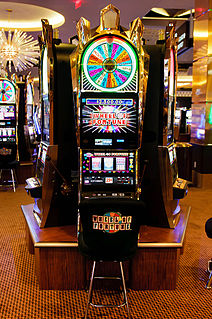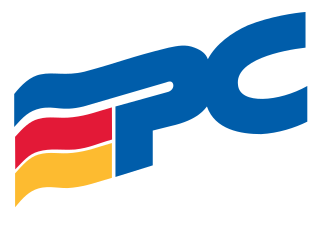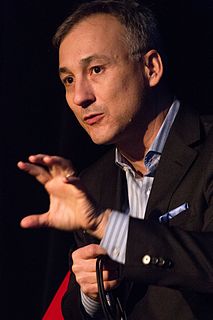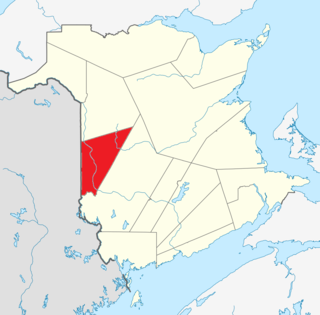National referendums are seldom used in Canada. The first two referendums saw voters in Quebec and the remainder of Canada take dramatically opposing stands, the third saw most of the voters take a stand dramatically opposed to that of the politicians in power.
Mixed-member proportional (MMP) representation is a mixed electoral system in which voters get two votes: one to decide the representative for their single-seat constituency, and one for a political party. Seats in the legislature are filled firstly by the successful constituency candidates, and secondly, by party candidates based on the percentage of nationwide or region-wide votes that each party received. The constituency representatives are elected using first-past-the-post voting (FPTP) or another plurality/majoritarian system. The nationwide or region-wide party representatives are, in most jurisdictions, drawn from published party lists, similar to party-list proportional representation. To gain a nationwide representative, parties may be required to achieve a minimum number of constituency candidates, a minimum percentage of the nationwide party vote, or both.
Canada holds elections for legislatures or governments in several jurisdictions: nationally (federally), provincially and territorially, and municipally. Elections are also held for self-governing First Nations and for many other public and private organizations including corporations and trade unions. Municipal elections can also be held for both upper-tier and lower-tier governments. Formal elections have occurred in Canada since at least 1792, when both Upper Canada and Lower Canada had their first elections.
The Citizens' Assembly on Electoral Reform was created by the government of British Columbia, Canada to investigate changes to the provincial electoral system. On 25 October 2004, it proposed replacing the province's existing first past the post (FPTP) system with BC-STV, a single transferable vote (STV) system. This recommendation was put to the electorate-at-large in a referendum held concurrently with the 2005 provincial election. In order for the results to be binding, the referendum required a super-majority including approval by 60% of voters overall and simple majorities in 60% of the 79 districts in order to pass. In the event, the second of these thresholds was easily met, with a majority supporting the reform in 77 out of 79 electoral districts, but the overall vote fell short of the 60% requirement, with 57.7% of the votes in favour.
Federal elections and provincial elections use paper ballots, but electronic voting has been used since at least the 1990s at the municipal level. Committee reports and analysis from Nova Scotia, New Brunswick, Quebec, Ontario and British Columbia have all recommended against provincial Internet voting, but several provinces use electronic counting of paper ballots. A federal committee has recommended against national Internet voting.

A referendum was held in the Canadian province of British Columbia on May 17, 2005, to determine whether or not to adopt the recommendation of the Citizens' Assembly on Electoral Reform to replace the existing first-past-the-post electoral system (FPTP) with a single transferable vote system (BC-STV). It was held in conjunction with the BC Legislative Assembly election of 2005. Voters were given two ballots at that time: a ballot to vote for a Member of the Legislative Assembly of British Columbia (MLA) in their constituency and a referendum ballot. The referendum received considerable support from the electorate but failed in meeting the demanding threshold that had been set. A second referendum was held in 2009.

An Ontario electoral reform referendum was held on October 10, 2007, on the question of whether to establish a mixed member proportional representation (MMP) system for elections to the Legislative Assembly of Ontario. However, the resulting vote was strongly in favour of the existing plurality voting or "first-past-the-post" (FPTP) system.

York was a provincial electoral district for the Legislative Assembly of New Brunswick, Canada in the southwestern portion of the province. It was created in 1995 from a large part of the former York South and a small part of York North.

Elections BC is a non-partisan office of the British Columbia legislature responsible for conducting provincial and local elections, by-elections, petitions, referenda, plebiscites in the Canadian province of British Columbia. Its federal equivalent is Elections Canada.
BC-STV is the proposed voting system recommended by the Citizens' Assembly on Electoral Reform in October 2004 for use in British Columbia, and belongs to the single transferable vote family of voting systems. BC-STV was supported by a majority (57.7%) of the voters in a referendum held in 2005 but the government had legislated that it would not be bound by any vote lower than 60% in favour. Because of the strong majority support for BC-STV, the government elected to stage a second referendum in 2009, but with increased public funding for information campaigns to better inform the electorate about the differences between the existing and proposed systems. The leadership of both the 'yes' side and the 'no' side were assigned by the government. The proposal was rejected with 60.9% voting against, vs. 39.1% in favour, in the 2009 vote.
The Saskatchewan Liquor and Gaming Authority is a Treasury Board Crown Corporation responsible for the distribution, control and regulation of alcoholic beverages and most gambling in the Canadian province of Saskatchewan. Its head office is located in Regina.
The BC Treaty Referendum was a province-wide referendum on First Nations treaty rights in British Columbia, Canada.

Following the 2005 electoral reform referendum, British Columbia held a second referendum on electoral reform in conjunction with the provincial election on May 12, 2009. In 2018, another referendum was held. As in 2005, voters in 2009 were asked to express themselves on the BC single transferable vote electoral system (BC-STV) proposed by the British Columbia Citizen's Assembly on Electoral Reform to ensure more proportional representation in the provincial Legislative Assembly. British Columbians were asked which electoral system should be used to elect legislators: the existing first-past-the-post electoral system or the proposed STV system.
Electoral reform is change in electoral systems to improve how public desires are expressed in election results. That can include reforms of:

Jake Daniel Stewart is a Canadian politician, who was elected to the Legislative Assembly of New Brunswick in the 2010 provincial election. He represents the electoral district of Southwest Miramichi as a member of the Progressive Conservatives.
The National Register of Electors is a continuously-updated permanent database of eligible electors for federal elections in Canada maintained by Elections Canada. It was established in December 1996 when Bill C-63 was granted royal assent by the Governor General of Canada, and the preliminary National Register of Electors was populated with data in April 1997 during the final Canada-wide enumeration. It replaced a system which required door-to-door enumeration of eligible electors for each electoral event. The database contains basic information about electors: name, address, sex, and date of birth. An elector may register or update their personal information between elections, or may request to be excluded from it per the Canada Elections Act.
This is list of elections in Canada in 2001. Included are provincial, municipal and federal elections, by-elections on any level, referendums and party leadership races at any level.
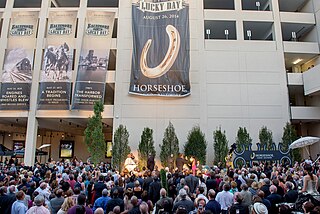
Horseshoe Baltimore is an urban two-story casino, and the second largest casino in Maryland with a 122,000-square-foot gaming floor. The multimillion-dollar facility features video lottery terminals, table games, and a World Series of Poker room. Horseshoe's 20,000-square-foot Baltimore Marketplace features Charm City food outlets, three premier restaurants, and several bars and lounges.

A referendum on electoral reform took place by mail-in ballot between October 22 and December 7, 2018, in the Canadian province of British Columbia. This was British Columbia's third referendum on electoral reform since 2005.
